Bibliothèque
Toutes les ressources
1661 – 1680 sur 2625 résultats
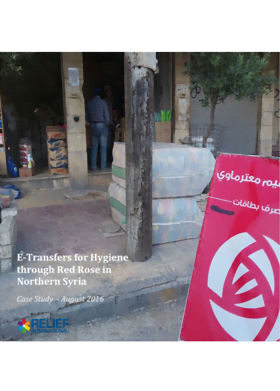
E-Transfers for Hygiene through Red Rose in Northern Syria
Report
Cash is receiving a lot of attention globally and is currently being scaled-up at the highest level. On the 9th February 2016, the UN Secretary-General Ban Ki-moon launched his report for the World Humanitarian Summit, calling for cash-based programming to be the ‘default method of support for affected...
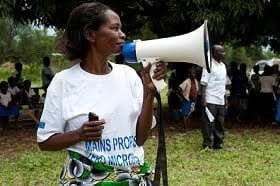
Documenting learning from cash transfer programming in the Ebola context
Blog Post
The CALP Network in West Africa is launching a new Cash and Ebola project that aims to optimize the use of CTP in future crises by documenting, analyzing and providing recommendations from the use of CTP in the Ebola Crisis.
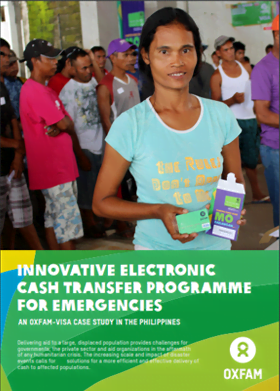
Innovative Electronic Cash Transfer Programme for Emergencies. An Oxfam Visa case study in Philippines
Report
On November 8, 2013, super Typhoon Haiyan (local name Yolanda) struck the Philippines, killing more than 6,000 people, and displacing an estimated 4.4 million individuals. Through its cash transfer programme, Oxfam conducted cash for work activities, and provided cash asset recovery to more than...
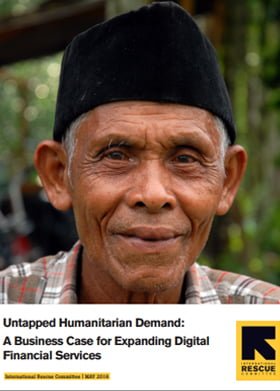
Untapped Humanitarian Demand: A Business Case for Expanding Digital Financial Services
Report
The International Rescue Committee, commissioned Strategy Impact Advisors to build a return on investment (ROI) model to estimate whether or not a business case exists for expanded coverage of digital financial services in crisis-prone areas (Lebanon and the Philippines). This analysis provides...
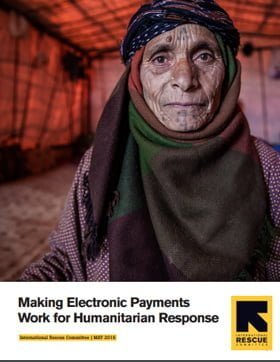
Making Electronic Payments Work for Humanitarian Response
Report
The dialogue leading up to the WHS has cast a spotlight on humanitarian cash transfers. Significant global attention has centered on the role of cash transfers in bringing efficiency to the humanitarian system and improving outcomes for crisis-affected populations. U.N. Secretary-General Ban Ki-moon has...

Webinar Best practice for contract valuations for Financial Service Providers
Webinar recording
On 11th August, the CALP Network, in collaboration with IFRC and the Fritz Institute organised a webinar to respond to a question that gathered significant interest on the dgroup: How to calculate the value of contracts with service providers for CTP programmes, and how to calculate the subsequent...

Cash Transfers in Remote Emergency Programming: Focus on risk mitigation
Blog Post
Humanitarian agencies increasingly deliver cash in locations with significant access constraints. Roger Dean, NRC’s Remote Cash Project lead, answers questions about how cash transfers can be used as an effective modality of response in such contexts.

Evaluation of the Use of Different Transfer Modalities in ECHO Humanitarian Aid Actions 2011- 2014
Report
This report evaluates the use of different transfer modalities (cash transfers, vouchers, inkind transfers and combined modalities) in ECHO Humanitarian Aid actions between 2011 and 2014. The overall objective of the study is to identify opportunities to improve the cost effectiveness and cost...
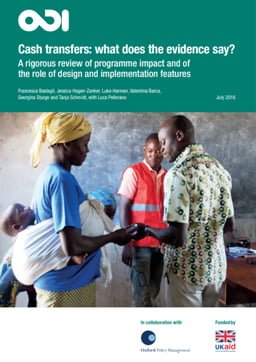
Cash Transfers: What Does the Evidence Say? A Rigorous Review of Programme Impact and of the Role of Design and Implementation Features
Report
Cash transfers have been increasingly adopted by countries worldwide as central elements of their social protection and poverty reduction strategies. A growing number of studies provide rigorous evidence on the impact of cash transfers, and the role of specific cash transfer design and implementation...
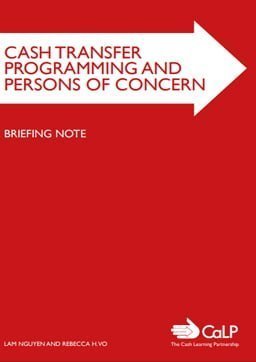
Cash Transfers Programming and Persons of Concern
Report
A significant majority of Persons of Concern (POC) in Asia are living in non-camp, urban settings. The longer-term implications of this for assistance programmes have often been overlooked or even dismissed as being too complex or politically sensitive to consider interfering. Nevertheless, the...
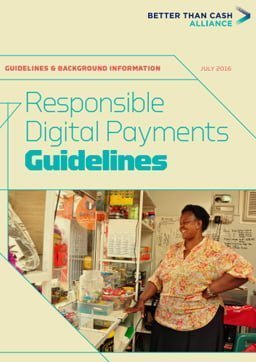
Responsible Digital Payments Guidelines
Guidelines and Tools
The focus of the Guidelines is on the common types of digital payments services provided to the financially underserved such as electronic money transaction accounts. For clients to adopt and use digital payments, they need to feel protected from risks such as loss of privacy, exposure to fraud, and...

Economic Impact of Refugees
Report
In 2015, the United Nations High Commission for Refugees accommodated over 15 million refugees, mostly in refugee camps in developing countries. The World Food Program provided these refugees with food aid, in cash or in kind. Refugees’ impacts on host countries are controversial and little...
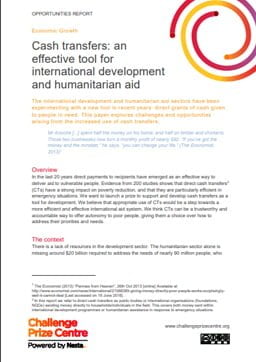
Cash Transfers: An Effective Tool for International Development and Humanitarian Aid
Report
In the last 20 years direct payments to recipients have emerged as an effective way to deliver aid to vulnerable people. Evidence from 200 studies shows that direct cash transfers (CTs) have a strong impact on poverty reduction, and that they are particularly efficient in emergency situations. This...

Finding Economic Opportunity in the City: Lessons from IRC’s Cash and Livelihoods Programmes in Cities within Lebanon and Jordan
Report
This report looks at IRC’s experiences in cash assistance and livelihoods programming in Lebanon and Jordan in the context of the Syrian regional response. It explores opportunities and challenges inherent to cash and livelihoods programming, identifying good practices and ways to integrate other...

Risk-verse to Risk-willing: Learning from the 2011 Somalia Cash Response
Report
In 201 the humanitarian community faced a difficult question. Could large-scale cash transfers provide an effective alternative to food aid delivery in South Central Somalia to avert a famine? Ultimately, between August 2011 and May 2012, more than 81 million US dollars in the form of unconditional cash...

Understanding the Impact of Cash Transfers: The Evidence
Policy paper
This policy brief summarises the findings of a rigorous review of the evidence on the impacts of cash transfers on individuals and households, covering literature spanning 15 years (2000–2015) (Bastagli et al., 2016). This review is distinct from other cash transfer reviews in terms of the methods used,...

MEB and SMEB Revision: Community Consultation
Report
The Lebanon Cash Consortium (LCC) is comprised of six INGOs that provide severely socio-economically vulnerable refugees with $175 worth of Multipurpose Cash Assistance (MCA) per month. The LCC uses a formula called the Proxy Means Tests (PMT), which generates a composite score representing economic...

Introducing the ELAN Data Starter Kit
Blog Post
Electronic cash transfers (e-transfers) often necessitate the transfer of personal data, some of which is sensitive, between humanitarian and private sector actors, such as financial service providers (FSPs). As use of e-transfers increases, having strong data management and protection practices in place...

Future of NGOs: Smaller, more specialised, and more efficient
Blog Post
The WHS was far from a revolution. Yet the unprecedented place occupied by cash at the WHS shows the ball is rolling. Nigel Timmins, Oxfam International’s Humanitarian Director, reflects on what underlies our attitudes and how NGOs will need to focus on a set of core activities that reflect their...
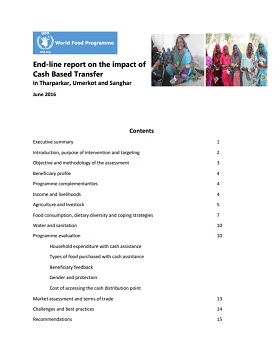
End-line report on the impact of Cash Based Transfer in Tharparkar, Umerkot and Sanghar
Report
The Food for Assets through Cashed Based Transfers was implemented in three drought affected districts of Sindh namely Tharparkar, Umerkot and Sanghar during the period from July 2015 to January 2016 covering 17,000 beneficiaries. The programme engaged beneficiary households in Cash for Training...